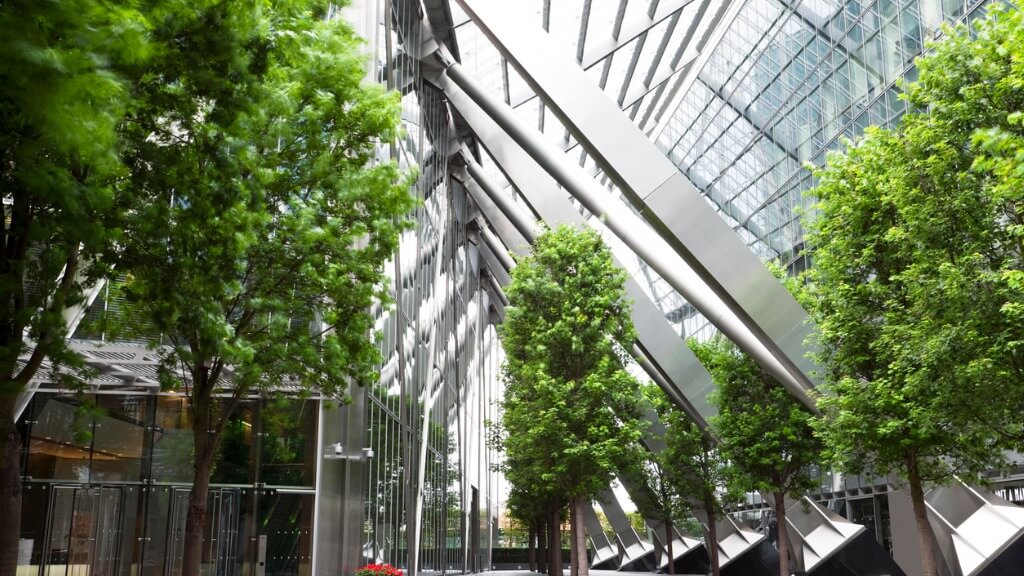Exploring The Rise Of Green Building Standards In The UK And Their Implications For Businesses

In recent years, the United Kingdom has witnessed a significant shift toward sustainable construction, driven by the pressing need to address climate change and reduce carbon emissions. This movement has led to the development and implementation of rigorous green building standards, reshaping the construction industry and presenting challenges and opportunities for businesses nationwide.
The Emergence of Green Building Standards
The U.K.'s commitment to achieving net-zero carbon emissions by 2050 has been a catalyst for introducing stringent energy efficiency standards in building construction. A pivotal development in this arena is the U.K. Net Zero Carbon Buildings Standard, launched in late 2024. This cross-industry initiative aims to provide a definitive framework ensuring that buildings contribute minimally to climate change.
The standard consolidates various metrics into an achievable yet aspirational benchmark, addressing both operational and embodied carbon. Key requirements include significant caps on operational energy use, on-site clean energy generation, prohibition of fossil fuels and limitations on harmful refrigerants.
Complementing this initiative, the U.K. government has introduced the Future Homes Standard, which will be enforced in 2025. This standard mandates that all new homes be highly energy-efficient with low-carbon heating systems, aiming for a 75%-80% reduction in carbon emissions compared to current levels.
Existing homes are also subject to enhanced standards, particularly concerning extensions and replacements, to improve energy efficiency and reduce bills. These measures are part of the U.K.'s broader strategy to meet its climate commitments and ensure that buildings are sustainable and fit for the future.
Implications for Businesses
Adopting these green building standards has significant implications for entrepreneurs, small business owners, startup founders and professionals in the U.K.
Regulatory Compliance and Competitive Advantage
To remain compliant, businesses involved in construction, real estate development and property management must adapt to these new standards. Embracing sustainable building practices ensures adherence to regulations and offers a competitive edge. As demand for eco-friendly buildings grows, companies prioritizing sustainability will likely attract environmentally conscious clients and investors.
The U.K. Green Building Council (UKGBC) highlights that sustainable buildings are increasingly commanding market premiums in both rents and prices. This reflects a shift in client and occupier preferences toward healthier, more sustainable environments. For businesses, being early adopters of green standards can significantly enhance market positioning.
Cost Implications and Long-Term Savings
While the initial investment in green technologies and materials may be higher, businesses can benefit from substantial long-term savings. Energy-efficient buildings significantly reduce operational costs through lower energy consumption. In fact, green buildings consume approximately 25% less energy compared to conventional buildings.
Moreover, properties built to high sustainability standards are less likely to require costly retrofits in the future, safeguarding businesses from potential financial burdens associated with noncompliance or obsolescence.
According to the MCS Foundation, households in a standard three-bedroom home could cut energy costs by more than £46,600 over 25 years by installing solar panels, heat pumps and battery storage. The savings could be even more substantial for commercial properties, demonstrating the financial benefits of sustainable building practices.
Innovation and Market Opportunities
The push for greener buildings fosters innovation within the construction and technology sectors. Businesses can develop and offer new products and services, such as energy-efficient building materials, renewable energy solutions and smart building technologies. This opens new revenue streams and positions companies as leaders in the evolving market landscape.
Additionally, as sustainable construction becomes the norm, businesses in related industries — such as consultancy, energy auditing and green certification — will likely experience increased demand for their expertise. Entrepreneurs who can identify gaps in the market and provide innovative solutions stand to benefit the most.
Enhanced Corporate Reputation and Stakeholder Relations
Adopting green building practices enhances a company's corporate social responsibility profile. Demonstrating a commitment to sustainability can strengthen relationships with stakeholders, including customers, investors and the community. It reflects a proactive approach to environmental stewardship, aligning business operations with broader societal goals.
For example, companies that actively promote their adherence to green standards often find it easier to attract talent, particularly younger employees who prioritize sustainability in their career choices. This aligns with broader workplace trends emphasizing corporate responsibility and environmental consciousness.
Challenges and Considerations
Despite the clear benefits, transitioning to green building standards presents challenges. Small and medium-sized enterprises (SMEs) may face resource constraints when adopting new technologies or training staff. There may also be uncertainties regarding the costs and benefits of implementing sustainable practices.
However, various organizations and government initiatives offer support to businesses navigating this transition. Engaging with industry bodies like the UKGBC can provide valuable resources and guidance.
Additionally, staying informed about government policies and potential incentives is crucial for leveraging available support. The U.K. government’s ongoing consultations and responses to building standards reflect a commitment to collaborating with industry stakeholders to achieve sustainable development goals.
Building a Sustainable Future: A Call to Action for UK Businesses
The rise of green building standards in the U.K. signifies a transformative period for the construction industry and the broader business community. For entrepreneurs and small business owners, embracing these changes is not merely about compliance but seizing opportunities for growth, innovation and leadership in sustainability.
While the journey may present challenges, the long-term benefits — from cost savings and market competitiveness to enhanced reputations — make the transition worthwhile. By proactively adapting to and advocating for green building practices, businesses can contribute to a more sustainable future while positioning themselves as pioneers in the green revolution.
Thanks for signing up to Minutehack alerts.
Brilliant editorials heading your way soon.
Okay, Thanks!